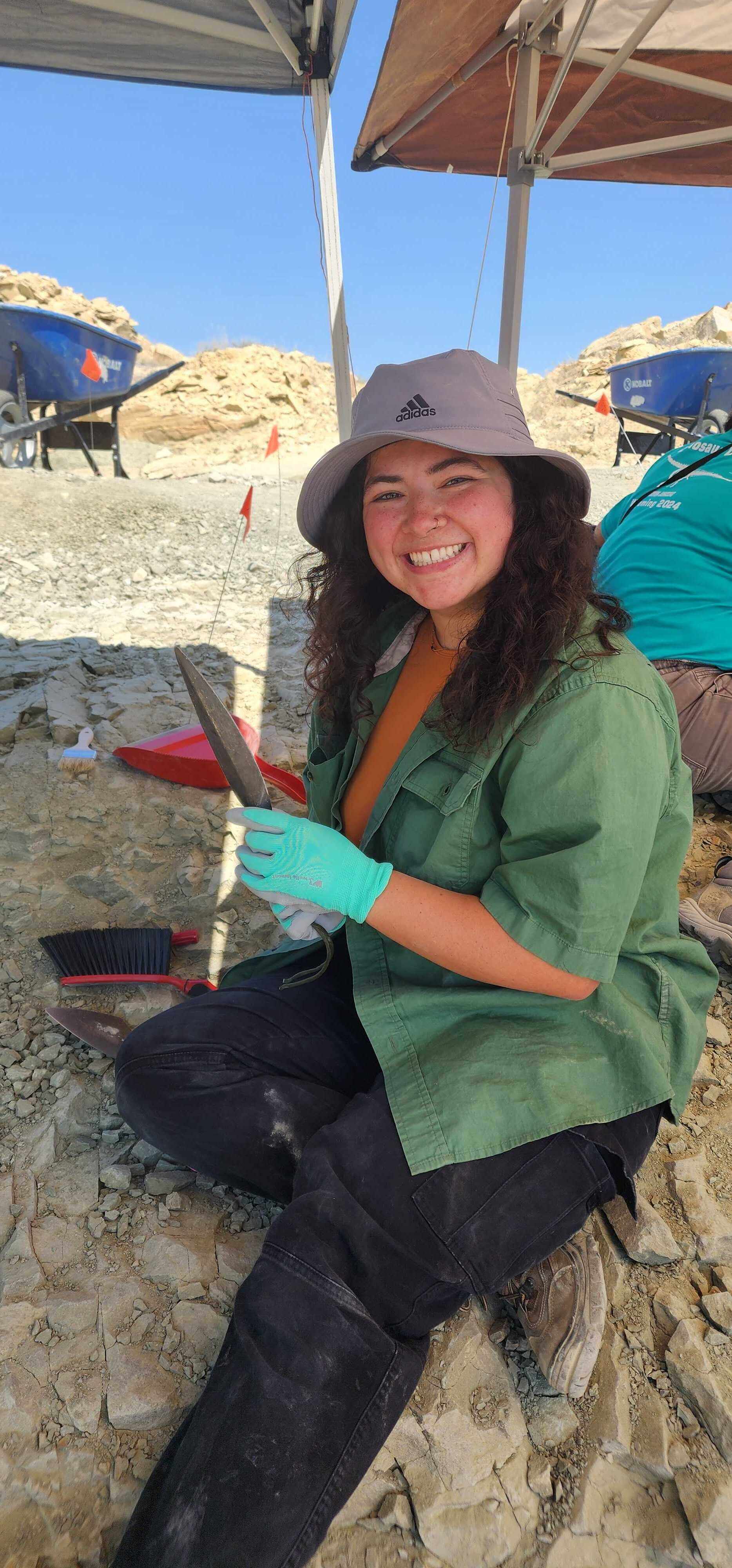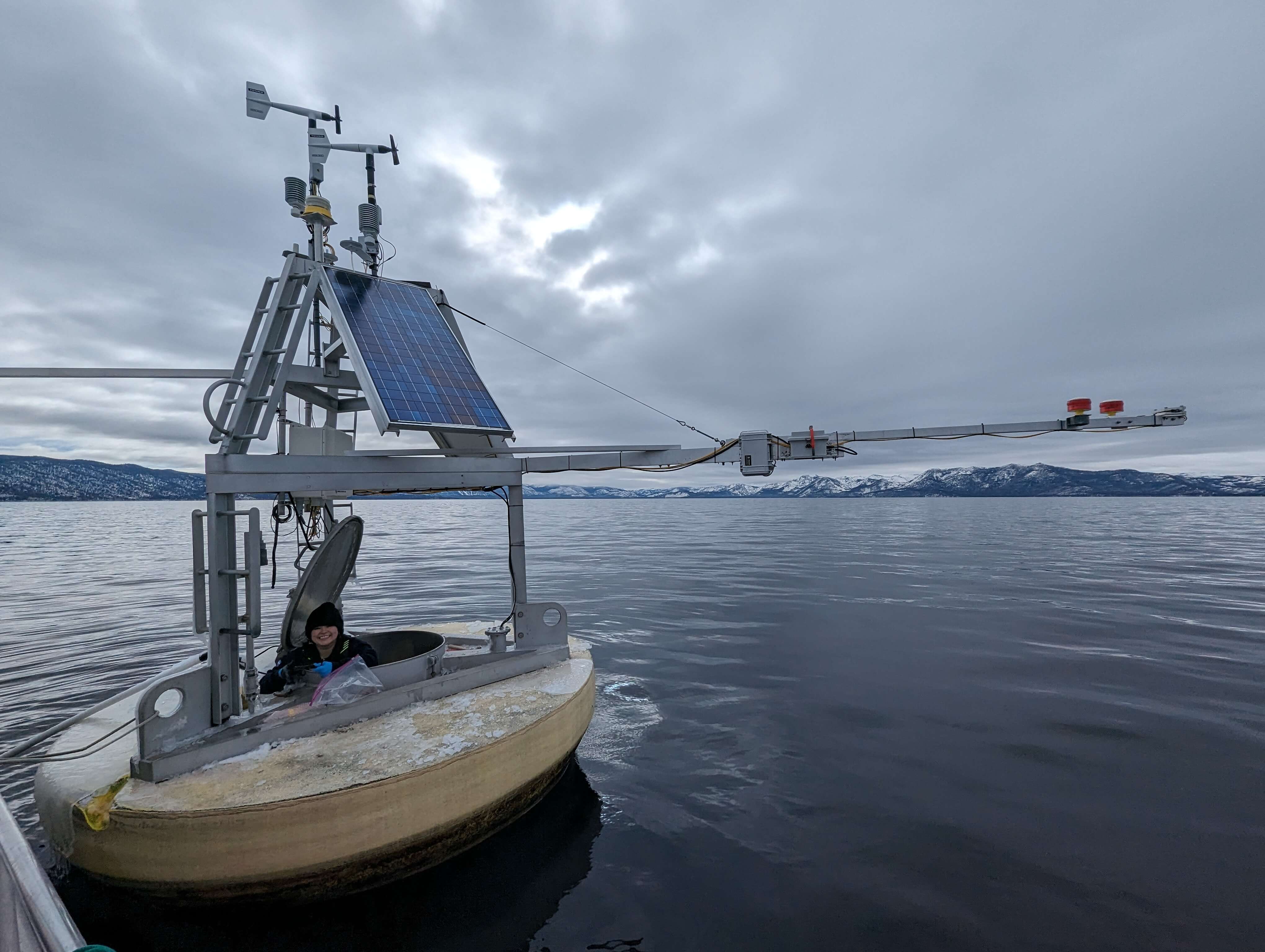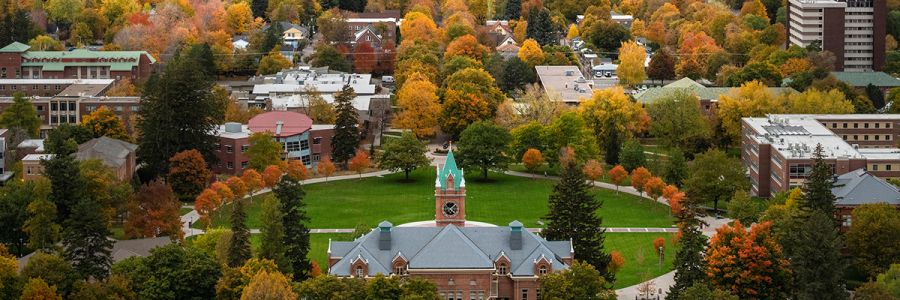Mission Control
Scholarships help student rocket from West Yellowstone to NASA
September 23, 2024
Brenna Hatch knew she wanted to be a geologist by the time she was 12 years old.
That’s when the Boise, Idaho, native’s dad accepted a job in West Yellowstone and Hatch started spending summers in the small town near the Montana-Wyoming border, just a 10-minute drive from Yellowstone National Park.
“I was outside all the time, enjoying all the geological wonders: the hot pots, the springs, the geysers. It was amazing,” Hatch said. “By the time I was 18, I thought, ‘I have to go to school at Montana — I know that much.’”
The fact that the University of Montana offered a stellar geoscience program clinched her decision. Other universities, she noted, frequently come to Montana to do their field work. At UM, it’s all right outside your door.
Once in school, Hatch embarked on an academic journey that would eventually take her all the way to the NASA Jet Propulsion Laboratory at the California Institute of Technology in Pasadena, Calif. Now, at the age of 25, she works as a technologist and data analyst on NASA’s ongoing Ecosystem Spaceborne Thermal Radiometer Experiment on Space Station (ECOSTRESS) climate monitoring experiment.

Along the way at UM, she received a significant boost in the form of privately funded scholarships. Hatch said the scholarships were instrumental in allowing her to finish her geological and earth sciences degree in just four years, while typically students take longer— sometimes another year or two— to complete the rigorous STEM program.
“The scholarships helped me with tuition, obviously,” she said, “but they also helped me because I didn’t have to get a job while in school. I was just able to focus on my geoscience studies.”
Being on that fast-track launched Hatch from college into a career doing some of the most cutting-edge work on earth — and beyond.
Her senior year, she received an internship with UM's Autonomous Aerial Studies Office, which trains faculty, staff and students to fly unmanned aircraft systems, like drones. She said the internship led her to doing contract work for NASA soon after graduation.
That work, in turn, became a full-time job.
Today, Hatch handles a diverse set of duties for the ECOSTRESS team. ECOSTRESS refers to a device mounted on board the International Space Station that monitors temperatures on the surface of the earth.
The information it collects informs a handful of climate-based issues, such as wildfire, volcanic activity, droughts and agricultural health. Scientists also use it to make heat maps of urban areas to help policymakers and city planners improve infrastructure systems.
As part of the project, Hatch assists in building, programming and maintaining ground-based radiometers all over the world, which help ensure that readings taken on the International Space Station are accurate. Her work in the science spectroscopy lab helps build a library that ensures satellites can correctly recognize objects on earth.

Her work frequently takes her on the road. One moment, she might be climbing onto a huge buoy in the middle of Lake Tahoe to repair one of the program's radiometers. The next, she could be monitoring biodiversity around Cape Town, South Africa, or taking part in a dinosaur dig in Wyoming.
For Hatch, who said she loves to travel and to meet her scientific and engineering counterparts from around the globe, it’s the opportunity of a lifetime.
“I get to see the world, and I get to learn so many new things,” she said. “My job now is more than just geology. It's a little bit of electrical engineering here, some computer science there. I love it.”
Hatch’s story is a good example of how scholarships at UM help change lives. Without the generous support of private gifts, her road from West Yellowstone to NASA might have been longer and more arduous, with many more financial barriers standing between her and her dream.
This fall, donors can help once again make an immediate impact on future leaders like Hatch, empowering them to reach their full potential.
To help Grizzly students experience a transformational education at UM, visit SupportUM.org/Scholarships.
